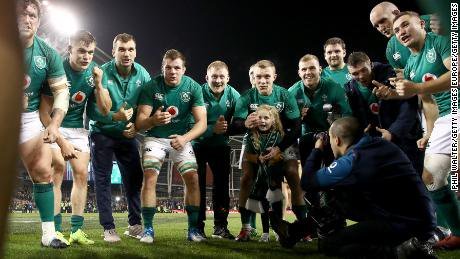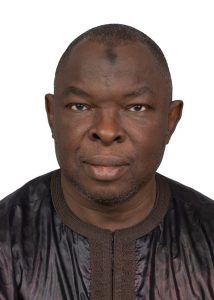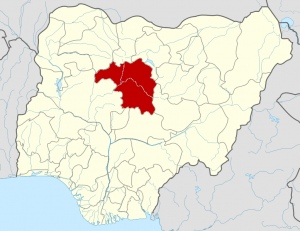Can Ireland reignite Rugby World Cup hopes?

In eight attempts, it has failed to make it into the last four — and in 1999 lost a play-off to make the quarters, against Argentina, while in 2007 the men in green couldn’t get past the initial pool stage.Yet after Irish exploits in 2018, hope swelled that the Rugby World Cup in Japan the next year would be very, very different. That year Ireland won a Six Nations grand slam, defeating all its northern hemisphere rivals. On the summer tour Ireland won a series away to Australia, 2-1. In November, as well as beating Italy, Argentina and the US, it toppled the world No. 1 All Blacks 16-9 in Dublin.At the World Rugby awards at the end of the year, coach Joe Schmidt was named coach of the year, fly-half Johnny Sexton was player of the year, and the side won team of the year. Ireland was on a roll…But 2019 has been different. In this year’s Six Nations, losses to England and Wales had some wondering aloud if Ireland had “peaked too soon.”With club seasons racing to their conclusions and Irish sides full of well-placed optimism, and with this week marking 150 days until the Big Dance starts, will Ireland throw its hat back into the ring of World Cup contenders? Before you can consider the nation’s rugby future, though, you must understand its past and present. READ: The female rugby coach blazing a trail in New YorkThe long road to the top”When I started with Irish Rugby, if we drew against Scotland in the Five Nations, it was a good year,” says Stephen Aboud, the former head of technical direction at the IRFU. “Back then you were never going to beat France, Wales were basically professional, even in the amateur days, and England were just unbelievably enormous. “You were not going to win every year against those guys. So we needed to get consistency. For me, the key to consistency is not just having deliberate planning but also having quality, quality people. It was about how many coaches you had and what were the differences between them?”Aboud now looks after technical direction for Italy, as part of the long-term project to make the Azzurri a force in the world game. In his time with Ireland, starting in the 1990s, he held roles overseeing player development, coach development, and then looking after it all. According to Aboud, the rise of Irish rugby has been a “perfect storm” of the accidental and deliberate. The development chief describes how, despite rugby being behind Gaelic games and soccer in terms of popularity and participation, before the exciting new dawn in 1996, the Irish union benefited from there being four pre-existing provinces that they could turn into professional entities. There is also a lasting culture of school participation, he says. Then there were the deliberate aspects. “Back then there were people who were visionaries about (development) pathways, but it was amateur,” Aboud adds. “So when the game went professional, we were able to shift finance and resources into what was already a deliberate program, for any player development. As a result of that, we started to say, ‘Okay, we now deliberately control the salaries of the players in each of the four provinces, and of the staff and each of those four provinces.’ In terms of alignment, there’s no obstruction.”According to Aboud there were already incredible talents ready to break through — players who would go on to be huge influences on the Irish game like Paul O’Connell, Brian O’Driscoll, Gordon D’Arcy and others — while certain coaches were ahead of the curve on concepts like recovery protocols, periodization, and controlling playing time. He also points to the facts that certain administrators were in respective hot seats, ones they would occupy for a long time. Thankfully, he intones, there is a shared vision. Another key aspect, Aboud says, is that there is an understanding that some of the finest minds in Irish rugby are tasked with working in player development — and some of the big schools in Ireland do the same — or making plans for the grassroots game. What’s that saying, “Good things come to those who wait?”It has been a long, sometimes slow process to get to a point where elite players in Ireland have hit an incredibly high standard, Aboud says. He can remember when driving around in a car with the Irish rugby logo on the side drew laughs and pedestrians giving you the finger. Things have gone really well under the current national team leadership, but after a few recent losses why, he wonders, are people getting so jittery?READ: Ex-Wales international Shane Williams brace for world record attemptKick-starting formThe image of Stephen Ferris manhandling Australia’s Will Genia at the 2011 Rugby World Cup has become one of the stand-out snapshots of that tournament. But it was a campaign that ultimately ended too early for the ambitious Irish side, after going down in the quarters to Wales. Ferris knows form at the big tournament is important. “With momentum comes confidence and calm smiles on faces,” the former flanker tells CNN. “I think Ireland just aren’t there at the moment. A small example which kind of sums up Ireland’s Six Nations for me was Johnny Sexton being substituted against Italy. Jack Carty came on for his first cap and yet all the talk was about Johnny coming off and kicking water bottles. “His body language was terrible. He just looked like he wasn’t enjoying himself. I think that’s currently where they are — if I was in the changing room after that I would be addressing it.”But it wasn’t just Johnny, some of the other players were pointing the finger at each other instead of sharing the responsibility. That’s something that they did very, very well over the last couple of years. They were really helping each other and it didn’t matter if somebody made a mistake. It’s almost like they forgot about it. In the Six Nations, if they made a mistake, it seemed to get stuck in their head.”However, Ferris fully believes people are “getting carried away” — that two off days against England and grand slam-winning Wales does not write-off the years of good work from Schmidt and Co. Key injuries had gone against Ireland in those Six Nations, Ferris reckons, and with that allied to the pressure on Sexton’s shoulders and the news that Schmidt would not be staying in Ireland beyond the upcoming World Cup, things wobbled a bit. “I think it’s a very British and Irish thing,” Ferris adds. “You win in November and people say you’re going to win the World Cup. Then a couple of months after that you are beaten by England and everybody’s saying you’re not going to get out of the World Cup group stage. That’s very fickle.”Ireland have got to get everybody back onboard, they have got to connect people, get the fans to believe and I think most importantly the team have got to believe for one another. When it comes to their first World Cup game — against Scotland — they need to believe they’re good enough to win it.”Ferris is confident that Ireland have the personnel and that Schmidt’s tactical nous will come to the fore. The work-rate in Ireland’s pack, with young men like lock James Ryan rising to the occasion, can make a telling difference. The team must also deal with the inevitable knocks of losing players to injury — something the team struggled with at the 2015 World Cup.It’s clichéd, but Ferris believes Schmidt’s side will approach the World Cup warm-ups one game at a time, build rhythm, work on established partnerships and then roll into the group stage, focusing on Scotland first. Of course, while some moan about Ireland’s chances, there are pool rivals who are setting their sights on the green team. READ: The 9/11 hero whose legacy lives on through rugbyReasons to be fearful”You do not have to be an expert in rugby to see who is the favorite in our match — it is enough to look at the rankings,” says Russia playmaker Yuri Kushnarev. The team leader for Ireland’s pool opponent goes on: “We are not dreamers and we understand that Ireland expects an easy and painless exit from our group (Pool A) but we will try everything we can so that it’s not easy for them. Thank God that rugby is a contact game — we will fight and we will make someone hurt in the game!”Of course Kushnarev means that Russia will “fight” in terms of competing for every ball and that the “hurt” will come from Russia’s bruising approach to the game rather than deliberately targeting opponents. But there is a fire there — Russia is eager to face the Irish. A fly-half or a full-back, Kushnarev appreciates Ireland’s strength in defense and their disciplined approach. He applauds the artistry of their territorial play, their kicking game and their use of the scrum and the maul. There is beauty hidden in the pragmatism.He also sees the size of the task ahead. “It’s hard to say this about our team, but we do not have distinctive features like the strong scrum of Georgia or the super-fast game of Japan. “This is a huge test for our team, to play against teams from the top echelon. We have had to build our game by developing individually. But we also have big, fast and strong guys. We did not learn to play rugby at school or at rugby academies (like the Irish). We are self-taught and are trying to go to another level.”Which is what the World Cup is all about: teams trying to take things to the next level. Ireland will understand this, but World Cups also offer a vastly varied field of opponents in any pool. The team can play into form. As Ferris says, there is a monkey on the back about the quarterfinals. Making a semi for the first time ever represents the next level for Ireland. Should they do it, it is most likely Ireland will have done so after facing either New Zealand or South Africa from Pool B, in the quarters. Beat one of those two in a knockout game and everyone in Ireland should believe that anything is possible.







